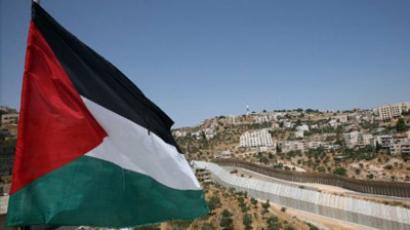Israel's friends-turned-foes meet
Turkey has warned Israel that it faces growing isolation in the region, as Turkish Prime Minister Recep Erdogan heads for Egypt. Both countries have experienced a rapid change of attitude towards Israel recently.
The Turkish leader is to meet Egypt’s top brass and the head of the Arab League there. They will discuss the regional tension and the situation in Palestine.Turkey cut all military and trade ties with the Jewish state after it refused to apologize for killing nine Turks in a raid on an aid flotilla last year.Amidst the conflict, Ankara increased its Navy presence in the Mediterranean and has vowed to convoy future humanitarian fleets going to Gaza.Turkey also said it will sue Israel in the International Court in The Hague over its blockade of Gaza.Tel Aviv may offer its support to Kurd and Armenian minorities in Turkey, if the conflict gets worse, Israeli media reported.The Jewish state has recently found relations with Cairo also strained, after rioters there ransacked the Israeli embassy. The ambassador was recalled to Tel Aviv after the incident.Anger swelled in Cairo after Israeli forces, responding to a cross-border militant attack, mistakenly killed five Egyptian police officers last month.Earlier Israeli Major General Eyal Eisenberg warned that a regional war may soon erupt in the Middle East and urged the Jewish State to be prepared for it. The statement was later rebuffed by Defense Minister Ehud Barak.
“Under the [Israeli Prime Minister] Netanyahu government, the world and the Arab world do not believe Netanyahu is interested in peace and as a result we are seeing more tensions, more anger and more isolation of Israel,” author and editor Yigal Walt from Tel Aviv told RT. “It is not certain whether Palestinians [are] interested in restarting peace talks…Israel has to take the initiative, has to come up with new ideas, has to push the peace process forward,” Walt added.
And Yaakov Lappin, national security correspondent at the Jerusalem Post, expressed concern that Israel is now losing favor with Turkey after losing friends with Egypt. “Turkey was a very important ally, and I am using the word “was” – unfortunately it is quite clear it no longer is,” he told RT. “Because of internal political processes and the ideology of its prime minister, Turkey decided to project itself as a new leader of the Muslim world.” “It is a dangerous game and I hope that it does not pass the point of rhetoric. But certainly we are seeing a dramatic shift in relations with Turkey and it is a source of great concern, there is no denying it whatsoever,” he said. “Israel has little influence on what is happening at the moment. Of course, good relations are the aim, but one of the problems is, first of all, who our neighbors are. If we have signed a peace treaty with a government or a representation, and that government falls, we have to wait and see who is going to replace the government before we can figure out what our state of relations will be. And that’s, in fact, what is going on around us,” he stated.
‘We had to stand and unite due to Israeli foreign policy’
Professor Vehbi Baysan of Yeditepe University believes that Israeli foreign policy has always stressed that the country is surrounded by enemies. But it will do a lot more if it adopts a more peaceful stance towards its neighbors. “Israel based its policy, not only internationally but also internally, that there is a constant, very strong, anti-Israeli feeling around the Arab world,” he told RT. “Therefore we have to stand and unite together. So, whatever Israel did to its neighbours – it includes invading Lebanon and attacking other countries – it was always done under the pretext of security, Israel defending itself. But now, as we see in the Middle East, what is happening is that these regimes are collapsing one by one.” “So I think if Israel, first of all, or the Israeli government takes peaceful actions with their neighbors and tries to build and establish better relations, I am sure there would not be much problem. But it is not an easy step for both sides One day this will actualize and both sides should not take it or stretch it or stress it too much,” he concluded.














